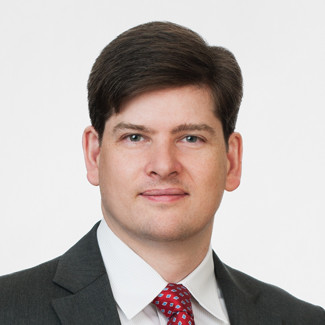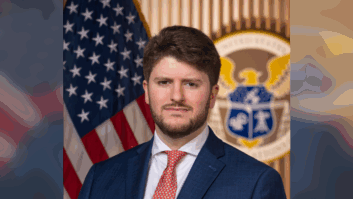 Commissioner Nathan Simington thinks the FCC should wait rather than make more changes to media ownership rules just now.
Commissioner Nathan Simington thinks the FCC should wait rather than make more changes to media ownership rules just now.
He calls it a strategy of “purposeful nothingness.”
Simington, a Republican who has been on the FCC for 11 months, came across as a big fan of radio when he gave a pre-recorded talk to the Massachusetts Broadcasters Association last week. And he said he “loves” working with Chairwoman Jessica Rosenworcel and that they have “got a lot done together on a bipartisan basis, and I think we’ll get a lot more done.”
On the subject of the refreshed 2018 Quadrennial Review, he didn’t comment directly on specific proposals, but he seemed to suggest he would resist moves to tighten up rules under the expected Democratic majority. Using a baking simile, he asked, “How about we let the dough proof a while?”
[“Biden Renominates Jessica Rosenworcel; Gigi Sohn Also Gets Nod”]
He said that with a newly constituted full commission, “We risk whipsawing back into the pre-Pai world, or, worse, ratcheting further back in the other direction. … Broadcast groups whose market caps vanish into a rounding error of big tech media platforms have to be permitted the space and time to compete. To discover business models that differentiate their offerings and grow audiences. To create scale efficiencies that allow them the flexibility to compete with digital-only platforms. To sell their bread.”
On the power of localism in broadcasting, he said, “Radio broadcasters have expanded their role to become ombudsmen between local communities and institutions, and this is nowhere more true than it is in communities where the most common language is not English. … Google and Facebook don’t have stringers outside of city hall sniffing out corruption, hurricane evacuation routing, or staffing for informational access to local community resources anywhere in their product development path.”
In language that would make any broadcast licensee proud, the commissioner talked about the “irreproducible technological advantage” broadcasters have thanks to their “durable, hardened communications infrastructure.”
“Let me ask you something. During a really bad storm — a tornado or a hurricane — what would you trust more to give you information on what you need to do or where you need to go: a hand-cranked radio or a cell phone? Stupid question, right? The radio. And even people not in broadcast know this. Why? Because everyone knows that your cell phone connection is the first thing to be knocked out, and your connection to broadcasters is, well, the last. That’s not to criticize cell phone carriers, of course. That’s just the reality of the situation.”
Simington said that in upcoming debates over media rules, “I hold out hope that I can urge my colleagues on the commission, and maybe even on Capitol Hill, to take full stock of the realities facing broadcasters. The enormous pressures they are under. And how we must preserve the industry prudentially. While I have no doubt that the full commission will be animated by a zeal to protect consumer interests, I will ask them to consider whether in 2021, broadcasters really wield the kind of power, whether nationally or in local markets, that justifies forceful application of rules drafted for a completely different competitive media landscape.”







